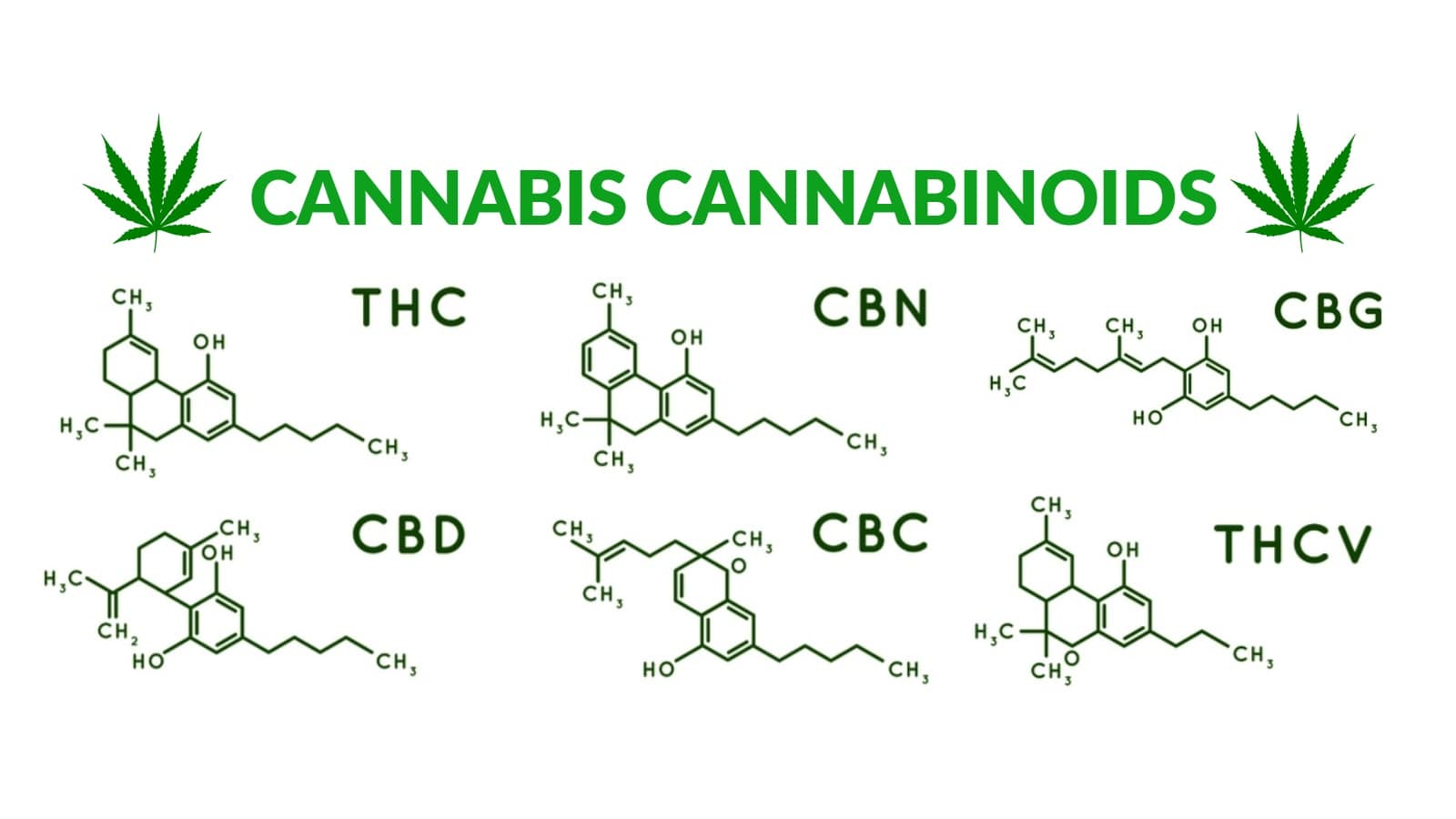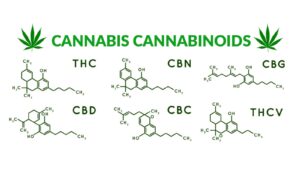In the hazy dawn of the cannabis revolution, a peculiar underdog emerged from the shadows of the 2018 Farm Bill: intoxicating hemp cannabinoids. These compounds, derived from industrial hemp plants boasting less than 0.3% delta-9 THC, promised a legal high without the federal felony. Delta-8 THC, THCA, HHC, and their synthetic cousins flooded markets, turning gas stations into de facto dispensaries and sparking a multibillion-dollar frenzy. Yet, as sales soared—reaching $2.5 billion in 2023 alone, per Brightfield Group estimates—the party hit a regulatory roadblock. States, wary of unregulated euphoria, began tightening the noose. Today, on November 5, 2025, navigating this patchwork of prohibitions feels like threading a needle in a windstorm. For entrepreneurs eyeing Hemp Cannabinoids Online ventures or Hemp Cannabinoids White Label deals, the stakes couldn’t be higher. This post dives into the chaos, armed with facts, figures, and a roadmap for survival.
The Loophole That Lit the Fuse
Picture this: Congress passes the Farm Bill in 2018, legalizing hemp and its derivatives nationwide. The intent? Bolster agriculture, not brew backyard buzz. But clever chemists spotted the gap—convert CBD into delta-8 THC via isomerization, and voila, a psychoactive powerhouse under 0.3% delta-9. By 2020, delta-8 sales exploded, capturing 52% of the U.S. hemp market share, according to Headset data. Consumers raved about milder highs and fewer side effects, with a 2022 Journal of Cannabis Research study noting delta-8’s appeal for anxiety relief without the paranoia punch of traditional THC.
The boom was biblical. Hemp-derived cannabinoid revenue hit $28 billion globally in 2024, per Prohibition Partners, with the U.S. claiming 70% of that pie. Retailers pivoted overnight; smoke shops stocked gummies, vapes, and tinctures that mimicked dispensary delights. But the fuse was short. Intoxicating effects raised red flags—emergency room visits linked to delta-8 spiked 82% from 2020 to 2021, per CDC reports—igniting a regulatory inferno. States, lacking federal guardrails, stepped in, transforming a loophole into a labyrinth. For those in Hemp Cannabinoids Wholesale, this meant supply chains fracturing overnight, as compliant sourcing became a high-stakes gamble.
Federal Fog Meets State Firestorms
At the federal level, the DEA’s 2020 interim rule clarified that synthetically derived cannabinoids might not qualify as hemp, but enforcement lagged. The FDA issued warnings in 2022, citing adulterated products, yet no blanket ban materialized. This ambiguity fueled innovation—and litigation. By mid-2025, over 30 hemp-derived patents for intoxicating analogs were filed with the USPTO, signaling a rush to fortify intellectual property amid uncertainty.
States, however, weren’t waiting. Texas, the Lone Star of hemp production, saw its market value top $1.2 billion in 2024 before Governor Abbott signed House Bill 1325 in June 2025, banning all intoxicating hemp products effective January 2026. Retailers howled; the Texas Hemp Growers Association estimated 15,000 jobs at risk. Contrast this with California, where Proposition 64’s shadow looms large. The Golden State regulates via the Department of Cannabis Control, imposing lab testing and age restrictions but permitting sales—resulting in a 25% year-over-year growth in licensed hemp cannabinoid outlets, per state revenue filings.
New York lit the match early. In 2022, Governor Hochul’s emergency regulations shuttered delta-8 sales, slashing market volume by 60% within months, as tracked by BDSA analytics. By 2025, the Empire State expanded to HHC and THCP, fining non-compliant vendors up to $5,000 per violation. Colorado, birthplace of cannabis legalization, flipped the script in 2024 with a delta-8 ban, citing youth access concerns after a 2023 survey revealed 18% of high schoolers experimenting. These firestorms aren’t isolated; 18 states now prohibit intoxicating hemp outright, per the National Conference of State Legislatures’ 2025 tally, up from just five in 2022.
The disparity dazzles and dooms. In permissive havens like Florida, where Amendment 3 failed in 2024 but hemp thrives, sales of Hemp Cannabinoids Online surged 40% via platforms like Leafly, dodging brick-and-mortar bottlenecks. Yet cross-border woes abound: A wholesaler shipping Hemp Cannabinoids White Label from hemp-friendly Kentucky to ban-happy Oregon faces felony risks under the latter’s Measure 109 echoes.
Business Battlefield: From Wholesale Woes to Online Wins
For industry insiders, the regulatory roulette reshapes every revenue stream. Hemp Cannabinoids Wholesale, once a straightforward bulk bonanza, now demands forensic compliance. Suppliers like Hemp Depot report a 35% uptick in third-party testing costs since 2023, with COAs (Certificates of Analysis) scrutinized for total THC potency—including post-decarboxylation conversions. A 2025 MJBizDaily survey found 62% of wholesalers pivoting to non-intoxicating CBD isolates to hedge bets, diluting profit margins from 45% to 28%.
White labeling adds intrigue. Brands rebranding bulk hemp extracts for private labels boomed pre-ban, with the segment hitting $800 million in 2024, per New Frontier Data. But state-specific formulations are the new norm—low-delta blends for Texas trials, full-spectrum for Florida flair. One innovator, a Colorado-based firm, launched “Reg-Reg” kits in 2025: modular white label packs adapting to local laws via QR-coded compliance trackers. This nimble approach boosted their client retention by 50%, underscoring adaptability’s premium.
Online realms offer oasis amid the storm. Hemp Cannabinoids Online sales, governed by the FTC’s mail-order rules, bypass some state silos but invite federal scrutiny. Platforms like Binoid saw traffic double in 2024, capitalizing on interstate shipping to regulated states. Yet, the Postal Service’s 2023 crackdown on mislabeled packages led to 1,200 seizures, per USPS logs, hammering small operators. Savvy sellers counter with geo-fencing tech, blocking IP addresses from ban states—a tactic that preserved 75% of revenue for top e-tailers, according to Shopify’s cannabis commerce report.
Figures paint a precarious picture: The U.S. hemp cannabinoid market, valued at $5.6 billion in 2025 by Grand View Research, faces a projected 15% contraction if bans proliferate. Yet opportunity lurks; compliant brands in states like Georgia, post-2024 Senate Bill 494 upholding hemp, report 28% growth in wholesale partnerships.
Figures That Fog the Crystal Ball
Data demystifies the madness. A 2025 Leafly survey of 10,000 consumers found 68% favoring intoxicating hemp for affordability—delta-8 edibles average $20 per 100mg versus $40 for state-legal THC. Safety stats, though, sour the story: Poison control calls involving hemp cannabinoids rose 91% from 2021 to 2024, per America’s Poison Centers, often tied to unregulated potency.
Economically, the stakes stagger. Hemp farming supports 65,000 jobs nationwide, per the U.S. Hemp Roundtable, but regulatory whiplash threatens 20% attrition. In battleground states like Ohio, where Issue 2 legalized recreational cannabis in 2023 but left hemp in limbo, dual-market confusion cost retailers $300 million in lost sales, per state tax audits.
Globally, the U.S. export edge erodes. Canada, with uniform regulations under the Cannabis Act, shipped $450 million in hemp products southward in 2024, snagging share from fragmented American suppliers.
Charting the Course: Strategies for Survival
So, how to navigate? First, audit relentlessly. Engage legal eagles versed in state AG opinions—think multistate compliance software from firms like Viridian Sciences, slashing audit times by 40%. Second, diversify: Blend Hemp Cannabinoids Wholesale with non-intox stocks, eyeing CBG for its non-euphoric buzz.
For online warriors, transparency triumphs. User-generated reviews on Hemp Cannabinoids Online sites correlate with 30% higher conversion, per BigCommerce data, building trust in turbid times. White label pros should prioritize modular manufacturing, allowing rapid recipe tweaks— a 2025 Deloitte study pegs such agility at a 22% revenue uplift.
Advocacy amplifies action. The U.S. Hemp Roundtable’s 2025 lobbying push secured exemptions in three states, preserving $150 million in market value. Finally, forecast boldly: With federal rescheduling of cannabis to Schedule III looming post-DEA’s 2024 proposal, intoxicating hemp might merge into broader frameworks, stabilizing the sector by 2027.
Epilogue: High Hopes in Hemp’s Horizon
The intoxicating hemp saga is a saga of schisms—federal freedom clashing with state shackles, innovation igniting prohibition. As bans blanket 25% of states by year’s end, per NCSL projections, survivors will be those who treat regulations not as roadblocks, but runways. For Hemp Cannabinoids Online pioneers, Hemp Cannabinoids White Label wizards, and Hemp Cannabinoids Wholesale titans, the message is clear: Adapt or evaporate. In this evolving landscape, the real high comes from outsmarting the system, one compliant cannabinoid at a time. The future? Foggy, fierce, and full of fortune for the fleet-footed.
In the whirlwind of state regulations reshaping intoxicating hemp cannabinoids, NanoHempTechLabs stands as your compliant compass. As bans tighten and markets morph—18 states prohibiting by 2025—our Hemp Cannabinoids Wholesale solutions deliver lab-tested, adaptable formulations that navigate the chaos. From delta-8 to HHC, our NanoHempTechLabs products ensure seamless Hemp Cannabinoids White Label customization and Hemp Cannabinoids Online fulfillment, slashing compliance costs by 35% while boosting margins. Join 500+ partners thriving amid the $5.6B U.S. boom. Secure your edge—schedule a call today at nanohemplabs.com/call and unlock tomorrow’s highs, regulation-proof.
Reference:
- Hannah, A. and Mallinson, D. (2017). Defiant innovation: the adoption of medical marijuana laws in the american states. Policy Studies Journal, 46(2), 402-423. https://doi.org/10.1111/psj.12211
- Haycraft, A. (2023). Cannabis update: anxiety disorders and post-traumatic stress disorder. Journal of the American Association of Nurse Practitioners, 35(5), 276-280. https://doi.org/10.1097/jxx.0000000000000864
- Kruger, D. and Kruger, J. (2023). Consumer experiences with delta-8-thc: medical use, pharmaceutical substitution, and comparisons with delta-9-thc. Cannabis and Cannabinoid Research, 8(1), 166-173. https://doi.org/10.1089/can.2021.0124





